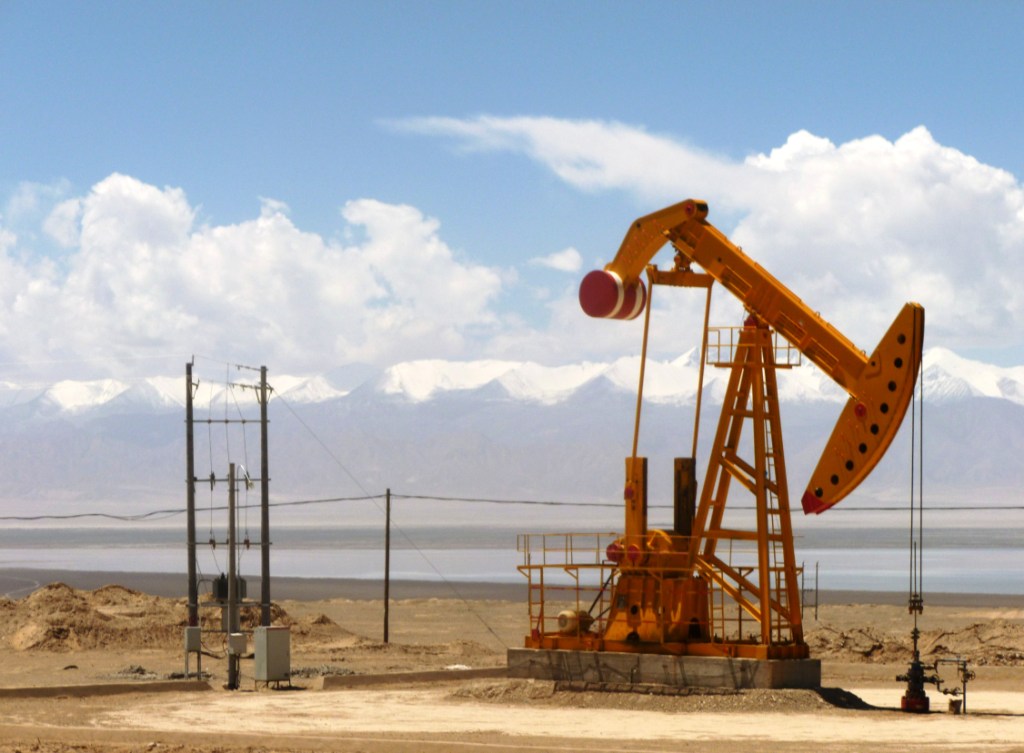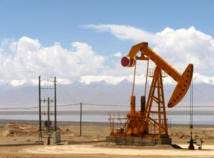Goldman Sachs
The agreement to freeze production at the level of January is unlikely to have a tangible positive impact on the market, according to the US largest investment bank. In addition, Goldman Sachs believe that there is a high percentage of probability that the agreement may be cancelled. In general, to accept the idea is much easier than to make more than a dozen countries to sign a binding document, and then strictly observe quotas.
According to Goldman Sachs’ estimates, prices can stabilize after stocks in the US stores will begin to decrease, and it will happen in the second half of 2016. The bank also hinted that OPEC could achieve much more tangible effect immediately reducing the production quota: the market would have seen these action as much more decisive.
Citi
Experts of the bank, included in the "Big US Four", agree with colleagues from Goldman: to freeze is not to cut. Citi believes that the current arrangement is a political move rather than a real measure of support to oil prices.
Overall, Citi does not change its forecast for oil production within OPEC: in the foreseeable future, it will rise to 33 million barrels per day.
Deutsche Bank
"Solid as a rock," the largest bank in Europe attacked by speculators, also spoke on the topical subject of oil negotiations. The agreement takes the oil market nowhere, says Deutsche Bank. The bank’s experts remind: the original idea of Venezuela was precisely to reduce the quotas, not freeze.
Deutsche Bank suggests that the four largest countries - oil-exporters (Saudi Arabia, Russia, Venezuela and Qatar) found it easy to arrive to the consensus. Why? According to the estimates of experts in raw materials, the oil industries in all these countries work with almost full capacity, and industrialists hadn’t had plans to increase the volume anyway. So the agreement came easily to them.
However, according to Deutsche Bank, if all OPEC countries actually support the initiative, it will allow oil quotations to grow in the future.
Macquarie
One of Australia's largest banks believe that the agreement will not significantly change the game’s rules, yet this is a step in the right direction.
Australian bankers pay attention to the fact that OPEC has made the first step in the coordinated support of oil quotations in the past 2 and half years, and it must not be underestimated. Earlier, Macquarie expected that the market will come to balance in supply and demand in the III quarter of 2016, but now the successful conclusion of the oil negotiations can significantly accelerate the process of balancing.
Barclays
The British colleagues do not share optimism of the former colony. The market is still between a rock and a hard place, according to Barclays. According to the bank’s experts, OPEC is going to pursue two conflicting objectives: price stability and the market share. In the worst scenario, everything will end up with a loss of the share and preservation of very low prices.
However, Barclays welcomed Saudi Arabia’s first official attempt to somehow deal with the situation, yet pointed out that the negotiations might be dangerously delayed if member countries are bogged down in technical details. In the end, the only winners may be the US slate oil miners, who certainly are not going to sign any of the freezing production levels agreements.
source: bloomberg.com
The agreement to freeze production at the level of January is unlikely to have a tangible positive impact on the market, according to the US largest investment bank. In addition, Goldman Sachs believe that there is a high percentage of probability that the agreement may be cancelled. In general, to accept the idea is much easier than to make more than a dozen countries to sign a binding document, and then strictly observe quotas.
According to Goldman Sachs’ estimates, prices can stabilize after stocks in the US stores will begin to decrease, and it will happen in the second half of 2016. The bank also hinted that OPEC could achieve much more tangible effect immediately reducing the production quota: the market would have seen these action as much more decisive.
Citi
Experts of the bank, included in the "Big US Four", agree with colleagues from Goldman: to freeze is not to cut. Citi believes that the current arrangement is a political move rather than a real measure of support to oil prices.
Overall, Citi does not change its forecast for oil production within OPEC: in the foreseeable future, it will rise to 33 million barrels per day.
Deutsche Bank
"Solid as a rock," the largest bank in Europe attacked by speculators, also spoke on the topical subject of oil negotiations. The agreement takes the oil market nowhere, says Deutsche Bank. The bank’s experts remind: the original idea of Venezuela was precisely to reduce the quotas, not freeze.
Deutsche Bank suggests that the four largest countries - oil-exporters (Saudi Arabia, Russia, Venezuela and Qatar) found it easy to arrive to the consensus. Why? According to the estimates of experts in raw materials, the oil industries in all these countries work with almost full capacity, and industrialists hadn’t had plans to increase the volume anyway. So the agreement came easily to them.
However, according to Deutsche Bank, if all OPEC countries actually support the initiative, it will allow oil quotations to grow in the future.
Macquarie
One of Australia's largest banks believe that the agreement will not significantly change the game’s rules, yet this is a step in the right direction.
Australian bankers pay attention to the fact that OPEC has made the first step in the coordinated support of oil quotations in the past 2 and half years, and it must not be underestimated. Earlier, Macquarie expected that the market will come to balance in supply and demand in the III quarter of 2016, but now the successful conclusion of the oil negotiations can significantly accelerate the process of balancing.
Barclays
The British colleagues do not share optimism of the former colony. The market is still between a rock and a hard place, according to Barclays. According to the bank’s experts, OPEC is going to pursue two conflicting objectives: price stability and the market share. In the worst scenario, everything will end up with a loss of the share and preservation of very low prices.
However, Barclays welcomed Saudi Arabia’s first official attempt to somehow deal with the situation, yet pointed out that the negotiations might be dangerously delayed if member countries are bogged down in technical details. In the end, the only winners may be the US slate oil miners, who certainly are not going to sign any of the freezing production levels agreements.
source: bloomberg.com



















